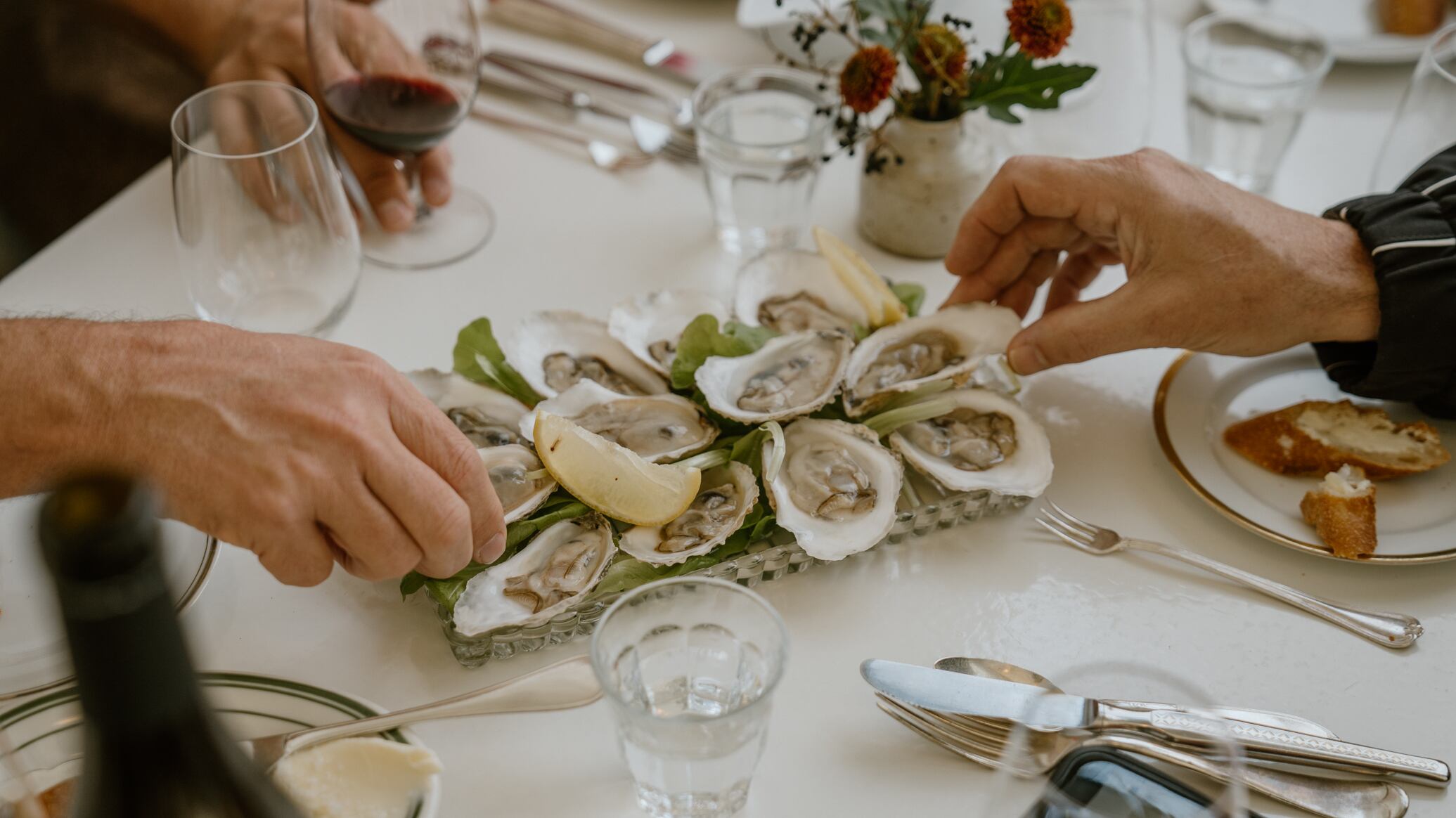However you feel about it, Thanksgiving is here. Big Grocery wants you to stock up for a turkey-based feast big enough to knock a whole family unconscious. It’s easy to overdo it and burn out. After all the heavy-duty dining from this weekend, you might want to next eat something that calls back to America’s foundational history but that still comes off unexpectedly chic. Bam: oysters.
Yes, Native Americans and settlers at Plymouth Rock dined on Atlantic oysters, which are smaller and brinier than Pacific oysters. Pacific Northwest-sourced oysters in particular get their merroir from our cooler, less-salinated waters, but those first feasts would have included Atlantic oysters. You can eat oysters year-round, but the old wives’ tale about eating them only during months with r’s in them (i.e. not May–August) ultimately owes to mating season. Exhausted from perpetuating the species, oysters harvested in warmer months just aren’t as plump and juicy as they are when they’re bulking up for hibernation. If you don’t feel like sharpening your own oyster knife this next month, you’re in luck.
Since December 2013, chef Kristen Murray’s pastry and seafood delights have shape-shifted out of Måurice’s small kitchen on Southwest 9th Avenue and Oak Street’s triangle wedge block by Thai Peacock and Sizzle Pie, earning top national reviews over the ensuing decade, including a Top 25 shout-out from The New York Times last month. Monthly chefs-in-residence charm the quaint little French-Scandinavian lunch counter’s menu with their own tastes. Anthony Dao of Hood River recently served haute Vietnamese comfort food, like braised pork congee, tamarind tahini salad and cold roast beef sliced with puntarelle and tomatillo fish sauce dressing. But one Måurice mainstay is the petite restaurant’s Atlantic oysters ($19 for six, $28 for nine, $38 for a dozen). Though Murray is taking Thanksgiving weekend off, her counter remains one of the few spots you can feast like a 17th century American in the weeks after the holiday.
Dressed with a habanada pepper sauce—the same bright orange coloring and floral notes of a habanero, sans spice—the simple handling of the Massachusetts-sourced oysters laps the East Coast’s mineral-rich waters down diners’ throats. The coppery aftertaste of the oyster’s briny liquor combined with the pepper sauce tangoed to form liquid gold that even a simple mignonette or lemon squirt couldn’t improve. Only gripe is serving them sans ice, but that’s a personal preference. Paired with sliced baguette bread and butter ($7) with a glass of French brut ($21), they make for the perfect light lunch.
Oyster reefs throughout the world have declined rapidly over the past century due in part to overharvesting, environmental pollution, and rapid commercial and residential coastal development. Eighty-five percent of wild oyster reefs known for the past two centuries are gone. This decline affects both wild-caught and farmed oysters, resulting in lighter yields and steeper prices for consumers. Dollar oysters and two-buck shucks were once ubiquitous and still found at Portland happy hours in spots like Jacqueline, OK Omens and Sugar Hill—all spots showing Saturday hours, if you now crave these slimy morsels—but those prices are now largely a memory from a bygone era. Since oysters need our support and do so much for the environment, from cleaning up water toxins to preserving coastlines, the absolute least we can do is be thankful for them.
Treat them like the delicacies they are, whether their bounty is around your neck or on your plate. Make them the center of your personal celebration, whether that’s scoring a seasonal sale deal or decompressing after family time. There’s dark times ahead but light, too. After all, amid the ruins of downtown Portland, you can still find bougie oysters on Burnside. Slurp on.
TRY IT: Måurice, 921 SW Oak Street, 503-208-4177, mauricepdx.com. 11 am–3 pm Thursday–Saturday (closed Thanksgiving weekend; open again next week).

